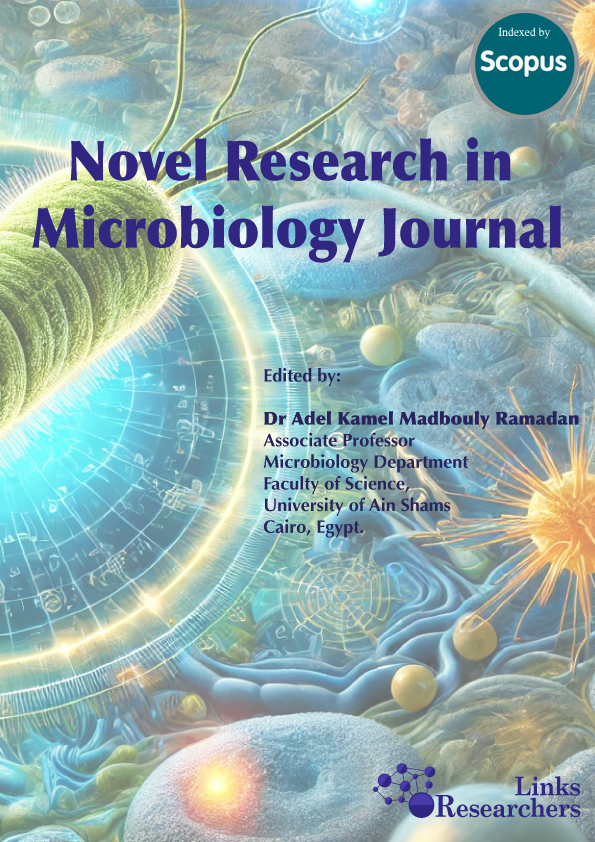Prevalence of multidrug resistant Escherichia coli recovered from patients suffering from urinary tract infections
Novel Research in Microbiology Journal (2022), 6(2): 1543-1556
Prevalence of multidrug resistant Escherichia coli recovered from patients suffering from urinary tract infections
Salwa Mahmoud Masoud1; Rehab Mahmoud Abd El-Baky1,2; Sherine A. Aly3; Reham Ali Ibrahem1*
ABSTRACT
Urinary tract infections are common human bacterial infections caused by Escherichia coli, which is one of the most frequent uropathogens. Treatment of such infections has become challenging due to the elevated levels of antimicrobial resistance. The aims of this work were to study the resistance pattern of E. coli pathogens recovered from patients with urinary tract infections attending to Minia University Hospital, Minia Governorate, Egypt, and to detect the co-existence of different extended spectrum β-lactamases (ESBLs) and metallo β-lactamases (MBLs) genes. The in vitro antibiotic sensitivity was tested using the disc diffusion assay. The production of ESBLs and MBLs was investigated through the combined disk and EDTA- combined disk synergy assays, while the molecular studies were carried out using the conventional polymerase chain reaction (PCR). High prevalence of ESBLs producers (61.6 %) was detected, whereas ESBLs and MBLs production was significantly associated with high multiple antimicrobial resistance index (MARI). The bla-TEM was the most prevalent genotype (94.6 %), while the prevalence of bla-NDM and bla-IMP was 45.9 % and 40.5 %, respectively. Imipenem and amikacin were the most effective antibacterial antibiotics. The current results showed statistically significant association of the tested genes, as 89 % of the E. coli isolates harbored more than one gene. This study highlighted a public health concern; as the elevated antibiotic resistance narrowed the therapeutic options and led to the failure of treatment of such bacterial infections.
To share on other social networks, click on any share button. What are these?






